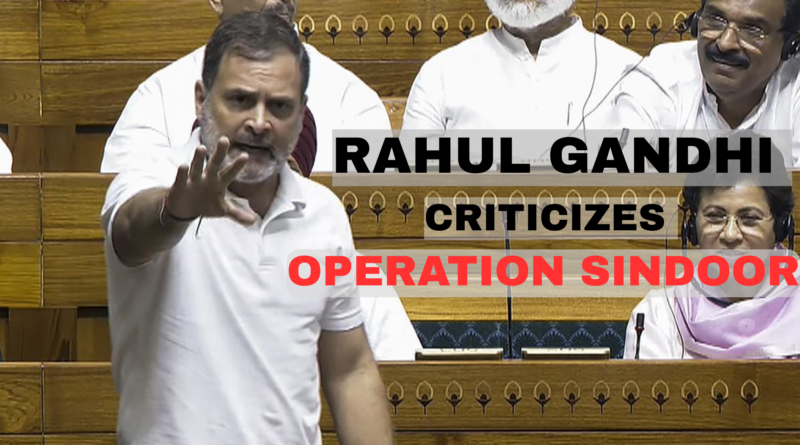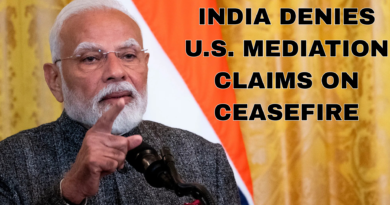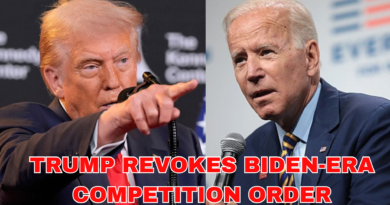RAHUL GANDHI CRITICIZES POLICY AND MESSAGING ON OPERATION SINDOOR
In a fiery speech in Parliament, Congress leader Rahul Gandhi launched a scathing attack on the central government, accusing it of mishandling the narrative surrounding Operation Sindoor. He argued that despite India’s operational success on the ground, the government failed to project a coherent and compelling message to both domestic and international audiences. According to him, this narrative vacuum allowed rival nations and critics to frame the discourse to India’s disadvantage.
Rahul Gandhi emphasized that wars and operations are no longer won solely on the battlefield but also in the court of global public opinion. He stated that the government did not adequately highlight India’s diplomatic achievements or strategic objectives, leading to confusion even among its allies. He claimed that a lack of transparency and coordinated communication weakened India’s credibility on international platforms.
The Congress MP also raised alarms over what he described as a strengthening China–Pakistan strategic alliance. He claimed that India’s foreign policy approach appeared reactive and lacked long-term vision, especially in light of growing regional tensions. According to Gandhi, the government should focus on proactive diplomacy rather than militaristic messaging that could alienate key global players.
Taking a dig at the Prime Minister’s statements, Gandhi said that the government appeared more concerned with creating “photo ops” than building strategic depth. He urged the Parliament to focus on building institutions and processes that withstand global scrutiny and geopolitical shifts. He warned that symbolic actions would not substitute for robust policy measures in a rapidly changing international environment.
Rahul Gandhi further accused the government of ignoring expert advice from seasoned diplomats and military strategists. He claimed that decision-making had become overly centralized, with very little space for dissenting opinions or alternative perspectives. According to him, this not only weakens internal debate but also leads to strategic blind spots.
The opposition leader also pointed out that India missed an opportunity to rally international support against cross-border terrorism during Operation Sindoor. He alleged that the government’s rigid approach failed to involve global institutions in a meaningful way. “This was a chance to isolate state sponsors of terrorism diplomatically, but that opportunity slipped,” he said.
In a broader critique, Gandhi questioned the government’s handling of national security matters, alleging a pattern of inconsistent policies and blurred lines between domestic politics and external strategy. He argued that the lack of a clear and coherent national security doctrine is detrimental to India’s long-term interests. “We must define who we are strategically, not just who we are politically,” he declared.
Concluding his address, Rahul Gandhi called for a bipartisan approach to national security and foreign policy. He urged the Prime Minister to take Parliament into confidence, consult opposition leaders more frequently, and ensure that India’s global image is driven by unity and strategic clarity rather than partisan triumphalism.




